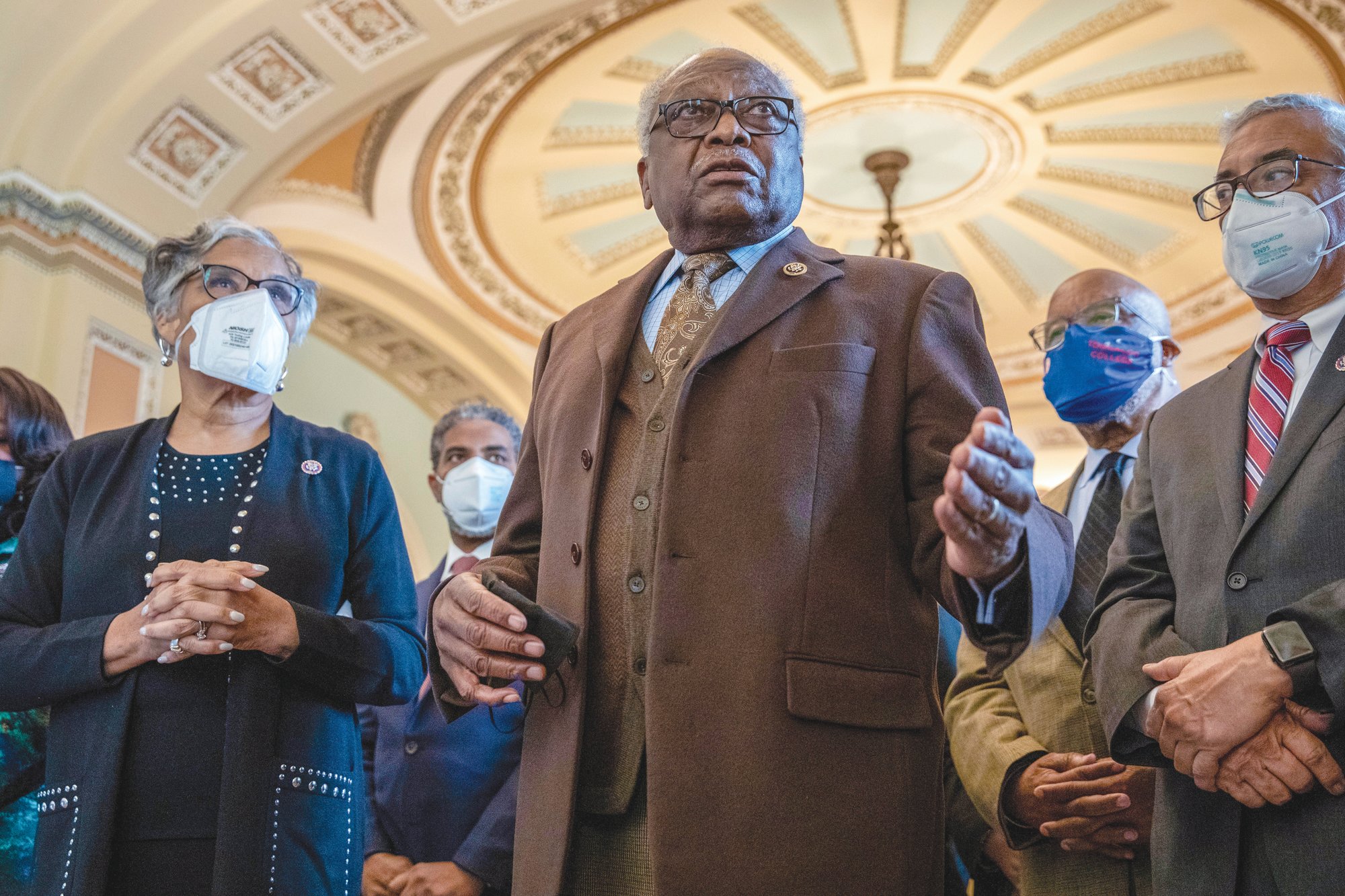South Carolina: What to expect on election night
Republicans in South Carolina have steadily increased their hold on elected offices, occupying all statewide elected seats and all but one spot in the state's seven-member U.S. House delegation. There have been some localized red-to-blue flips in recent years, but in many cases the state's primaries, rather than general balloting, are the more contentious elections.
In this year's midterms, Republicans are looking to maintain their dominance in statewide-elected offices, particularly the governor's office, which a Democrat has not won in more than 20 years.
In fact, no Democrat has won statewide in South Carolina since 2006, when Jim Rex won election as the state superintendent of education.
Gov. Henry McMaster is seeking his second full term in the office he has occupied since late 2016, when then-Gov. Nikki Haley left the governor's mansion to become the Trump administration's first U.N. ambassador. McMaster — then South Carolina's lieutenant governor — ascended to the office he had long sought, having lost to Haley in a four-way primary in 2010 before winning election as her lieutenant governor in 2014.
McMaster is challenged by Joe Cunningham, a 40-year-old former congressman who has based much of his campaign against the 75-year-old McMaster around the notion of ousting career politicians in office "longer than I've been alive." Should he win reelection and serve out a full second term, McMaster would be on track to be South Carolina's longest-serving governor.
Elsewhere in the state, most of the seats in South Carolina's seven-member U.S. House delegation are considered safe wins for the incumbents, including the state's sole congressional Democrat, U.S. Rep. Jim Clyburn — currently the No. 3 Democrat in the House.
Republican U.S. Sen. Tim Scott seeks a second term in what he has said will be his final Senate campaign.
The 1st District is the one among South Carolina's seven House districts seen as with the greatest ability to flip between the two major parties. In 2018, Cunningham became the first Democrat in decades to represent the seat, from which then-Rep. Mark Sanford had been ousted after a primary loss that year. But in 2020, Mace triumphed over Cunningham, working to pass a number of bipartisan bills and at times drawing critique from other Republicans as too willing to work with Democrats.
Republicans have majorities in both the state House and state Senate chambers.
Here's a look at what to expect on election night:
ELECTION NIGHT
Polls close at 7 p.m.
HOW SOUTH CAROLINA VOTES
Photo ID is required for all voters, who needed to register prior to Oct. 9.
This year's primaries were South Carolina's first elections with no-excuse, in-person early voting. Prior to the 2022 primaries, South Carolina voters had been able to cast absentee ballots in person, but they had to include an excuse for why they could not be at the polls on Election Day. The law passed this year has South Carolina returning to mail-in absentee ballots.
There are two weeks of true early voting ahead of Election Day, with early-voting centers open in all of the state's 46 counties, except for Sundays and any state holidays.
DECISION NOTES
The AP may call a statewide or U.S. House race in which the margin between the top two candidates is 0.5% or less, if we determine the lead is too large for a recount to change the outcome.
South Carolina has automatic recounts in runoff elections if the margin between the winning and losing candidate is 1% or less of the total votes cast for that office. Candidates can waive their right to a recount in writing.
The AP will not call down-ballot races on election night if the margin between the top two candidates is less than 2% or if the leading candidate is within 2% of the 50% runoff threshold. The AP will revisit those races later in the week to confirm there aren't enough outstanding votes left to count that could change the outcome.
WHAT ELSE SHOULD I KNOW?
Q: WHAT'S CHANGED SINCE THE PANDEMIC ELECTION OF 2020?
A: For the first time in this year's general election, South Carolina has true in-person early voting, as well as no excuse absentee voting. That's thanks to election reform legislation that state lawmakers passed with overwhelming bipartisan support.
Q: WHAT DID WE LEARN FROM THE PRIMARIES?
A: There were intense GOP primaries in the 1st and 7th District against U.S. Rep. Nancy Mace and Tom Rice, respectively. Both drew former President Donald Trump's anger after opposing him in various ways. Mace won her primary outright against Trump-backed challenger Katie Arrington, a former state House representative, while Rice suffered a major upset against state Rep. Russell Fry.
Q: WHAT DO TURNOUT AND ADVANCE VOTE LOOK LIKE?
A: On the first day of early voting, South Carolina's State Election Commission — which manages the state's election procedures, not the secretary of state's Office — reported record numbers.
As of Oct. 21, there were 3,378,773 registered voters in South Carolina, where voters do not register by party affiliation. Mail ballot requests have been open since the beginning of the calendar year and were due by Oct. 28.
Q: HOW LONG DOES COUNTING USUALLY TAKE?
A: Vote counts in a few areas — Richland County, around the capital city of Columbia, as well as some pockets near the Upstate city of Greenville — can take considerably longer than the rest of the state.
Q: WHAT HAPPENS AFTER TUESDAY?
A: South Carolina has automatic recounts in runoff elections if the margin between the winning and losing candidate is 1% or less of the total votes cast for that office. Candidates can waive their right to a recount in writing.
More Articles to Read

